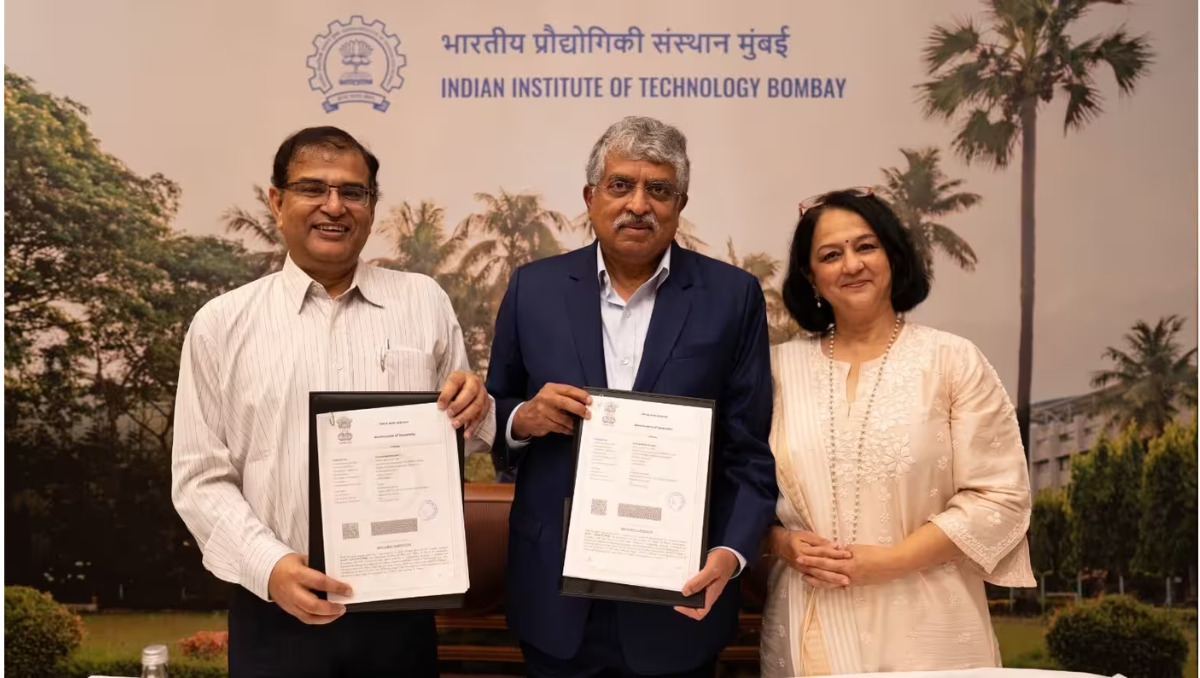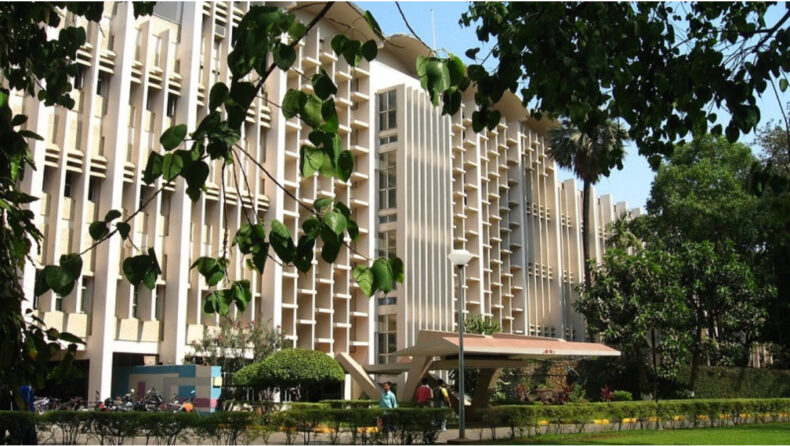In a first, IIT Bombay has received an anonymous donation of INR 160 crore, with the funds planned to set up a GESR hub on Thursday.
Table of Contents
A First For IIT-B
According to an official statement from the reputed technology institute, the grant of $18.6 million was made by an alumnus, who surprisingly, wished to remain anonymous. The very first anonymous gift received by the institute, Director Subhasis called it a “rare occurrence”, comparing it to temple-goers leaving largesses in a ‘hundi’. He also commented how the nature of the contribution was a departure from what is usually seen in Indian academia, and expressed immense gratitude on the institute’s behalf.
The 160 crores arrive nearly two months after co-founder and chairman of Infosys, founding chairman of UIDAI and alumnus of IIT Bombay, Nandan Nilekani, gave a handout of INR 315 crore to the same institute, making it the highest university grant in India. While falling well short of that figure, this latest contribution still ranks in the top few highest grants made by an individual to the Bombay institute.

Redefining institute’s role in green energy
The director asserted that the contribution “reaffirms” the institute’s dedication towards ingenious remedies for the global climate crisis through the establishment of the Green Energy and Sustainability Research hub, which is expected to empower “cutting-edge research, interdisciplinary collaborations, and nurturing entrepreneurial endeavours”.
Furthermore, the institute plans to locate the hub in a “state-of-the-art academic building” in the IIT Bombay campus in suburban Powai. The hub would introduce a greater focus on areas like evaluating climate risks and formulation of mitigation strategies, adaptation to climate change, and comprehensive environmental monitoring, while gaining a significant leg-up in terms of adoption of renewable energy sources and energy-efficient technologies.
This, the institution believes, will platform research on carbon capture, biofuels, battery technologies, solar photovoltaics, clean-air science, flood forecasting, among others. While a majority of the funds received would be kept for future research, the amount spent on the research centre would also allow it to offer educational training in line with what the industry demands, along with lines of collaborations opened with global universities and corporations.
The anonymous endowment has arrived at an interesting time, as the premier institute has been subjected to budget cuts, and pushed to lend money from the Higher Education Financial Agency (HEFA). The pandemic also contributed to their financial maladies, with lesser funds coming from industry, mainly in the manufacturing sector.
IIT Bombay has been a part of the Institutions of Eminence (IoE) scheme since 2018, but the flow of the promised 1000 crore rupees has been reportedly “patchy” from 2019 to 2021, with reasons ranging from “bureaucratic delays to Covid-related challenges”. Chaudhuri, in his statement, was hopeful that the anonymous contribution would open the doors for others to “come forward for the cause of IIT Bombay.”
Recent history of alumni donations
Other officials chimed in as well, stating how the growth of the institute relies on the pillar that is alumni support, with their contributions implemented towards re-building of hostels, redesigning and upgradation of laboratories, among others. In 2021, Rekha and Rizwan Koita from the 1992 batch donated 25 crore for the establishment of the Koita Centre For Digital Health (KCDH), with Ashank Desai, another alumnus, donating 15 crore to set up the Ashank Desai Centre for Policy Studies in 2016. Batches have collectively donated as well, with the group of 1997 pledging 26 crore for legacy projects.
Coincidentally, the 160 crore gift is separated from yet another monumental contribution to an educational body by barely 30 days. On 21st July, McPherson College in Kansas, with only 800 students and the only institution in America to offer a bachelor’s degree in automotive restoration, received $1 billion dollars from an unknown donor.

Some public interest groups attribute anonymous donations to possible fraud and money laundering, while philanthropists argue for the legitimacy in their anonymous methods, ranging from avoiding future solicitations, to fear of being associated with unpopular causes. The issue of donor privacy against public disclosure was discussed substantially through American courts since 2012, with the Supreme Court eventually ruling in favour of privacy in 2021.













